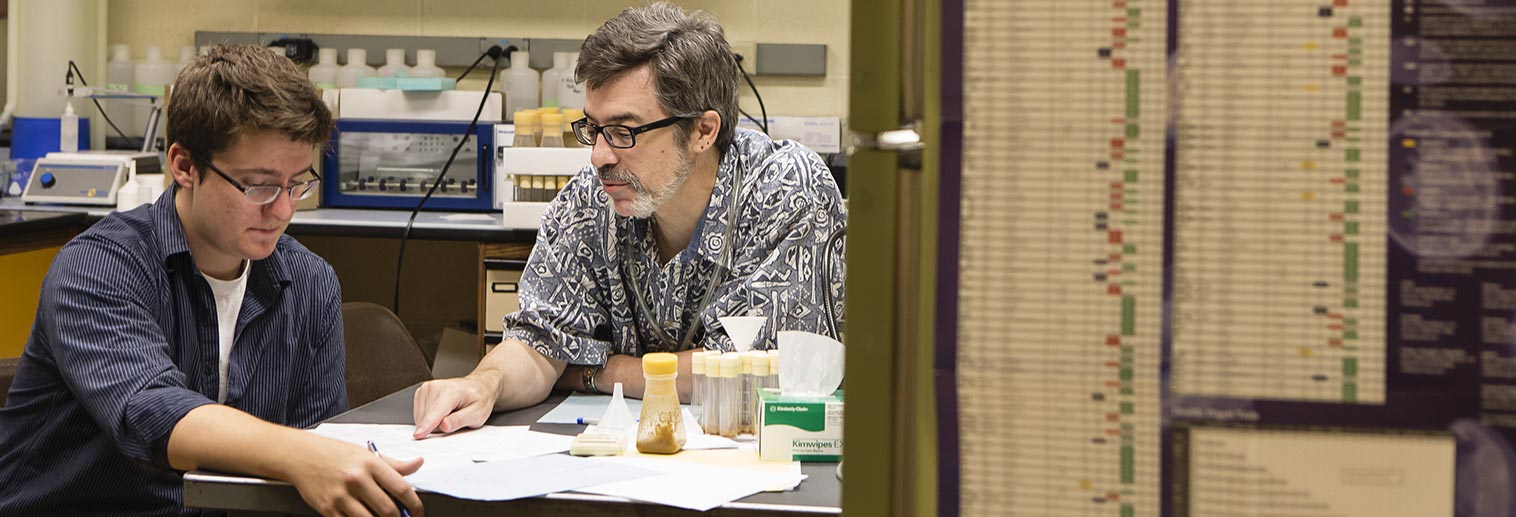Christopher Jones
Professor of Biology (1999)
Education
- B.A. in Biology and Russian, Haverford College
- M.Phil. in Molecular Biophysics & Biochemistry, Yale University
- Ph.D. in Molecular Biophysics & Biochemistry, Yale University
Contact
Email: jonesc@moravian.edu
Phone: 610-861-1614
Office: Collier Hall of Science, Room 306
Personal Website: home.moravian.edu/users/bio/mecjj01/
Areas of Research and/or Expertise
Molecular genetics, behavior, learning, memory, Drosophila melanogaster.
Biography
Christopher Jones is a molecular geneticist interested in understanding the molecular underpinnings of behavior, particularly learning and memory.
After completing his Ph.D., in which he used molecular genetic techniques to dissect the assembly pathway of the rotary motor which enables Salmonella typhimurium (and related bacteria) to swim, he spent three years in Japan as an "invited foreign researcher" in the Hotani Molecular Dynamic Assembly Project, part of the Japanese government's ERATO (Exploratory Research for Advanced Technology) program. Upon returning to the U.S. he changed his research focus to learning and memory in the fruit fly, Drosophila melanogaster, at Cold Spring Harbor Laboratory as an NIH Postdoctoral Fellow and a Henry Wendt Neuroscience Fellow. Before coming to Moravian University, he spent two years as a post-doctoral fellow at Meharry Medical College in Nashville, beginning a molecular and genetic analysis of the Drosophila Presenilin gene; defects in the presenilin genes in humans have been linked to Alzheimer's disease.
At Moravian, he has developed and taught a range of courses both in and out of the department. As a member of GCAT (the Genome Consortium for Active Teaching) he has brought advanced techniques such as DNA microarray analysis into Moravian's undergraduate curriculum. One of the inaugural members of the GEP (Genomics Education Partnership), his genomics course allows students to assemble and annotate published genomic data from various species of Drosophila, participating directly in the generation of new knowledge to benefit the larger scientific community. This work has resulted in numerous publications, some of which include Moravian students as co-authors.

